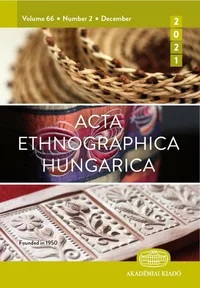The Last Four Decades of Research on Wills in Hungary
The Last Four Decades of Research on Wills in Hungary
Author(s): József HorváthSubject(s): History of Law
Published by: Akadémiai Kiadó
Keywords: will; wills in source publications; value of wills as historical sources
Summary/Abstract: In recent decades, there has been growing interest in the use of wills as historical sources. This period has seen a tenfold increase in the number of source publication volumes and editions published by Hungarian researchers, and an even greater increase in the number of wills published in their entirety. In the period under review, around 70 researchers have been actively working with this source type: besides the archivists spearheading their publication, dozens of legal historians, historians, and ethnographers have been involved in the work. Following an overview of the most important historical research antecedents and a brief appreciation of the work of Ernő Tárkány Szücs in this field, the present study examines the respective work carried out in Hungary during the last four decades, grouped according to the researched periods. With the publication of the Prothocollum Testamentorum of Bratislava, the number of published wills from the late Middle Ages significantly increased, while important findings have also emerged in terms of research on the wills of the nobility. From the early Middle Ages, a significant selection has been made from among the extant testaments originating from various royal free cities (e.g., Nagyszombat [Trnava, Slovakia], Sopron, and Debrecen) and market towns (e.g., Gyöngyös, Győr, and Kecskemét), while a significant number of wills belonging to the Transylvanian nobility have also been published. While large numbers of extant testaments originating from market towns (Nyíregyháza, Szentes, Vác, Zalaegerszeg, etc.) in the 18th and 19th centuries have been published, important publications have also appeared containing the wills of the nobility, clergy, and village serfs. The vast majority of such volumes have included a longer or shorter introductory study, although we might also mention the dozens of important analytical essays published in volumes of collected studies, which illustrate the value of testaments as sources in the fields of social, economic, cultural, ecclesiastical, and legal history.
Journal: Acta Ethnographica Hungarica
- Issue Year: 67/2022
- Issue No: 1
- Page Range: 99-126
- Page Count: 28
- Language: English

